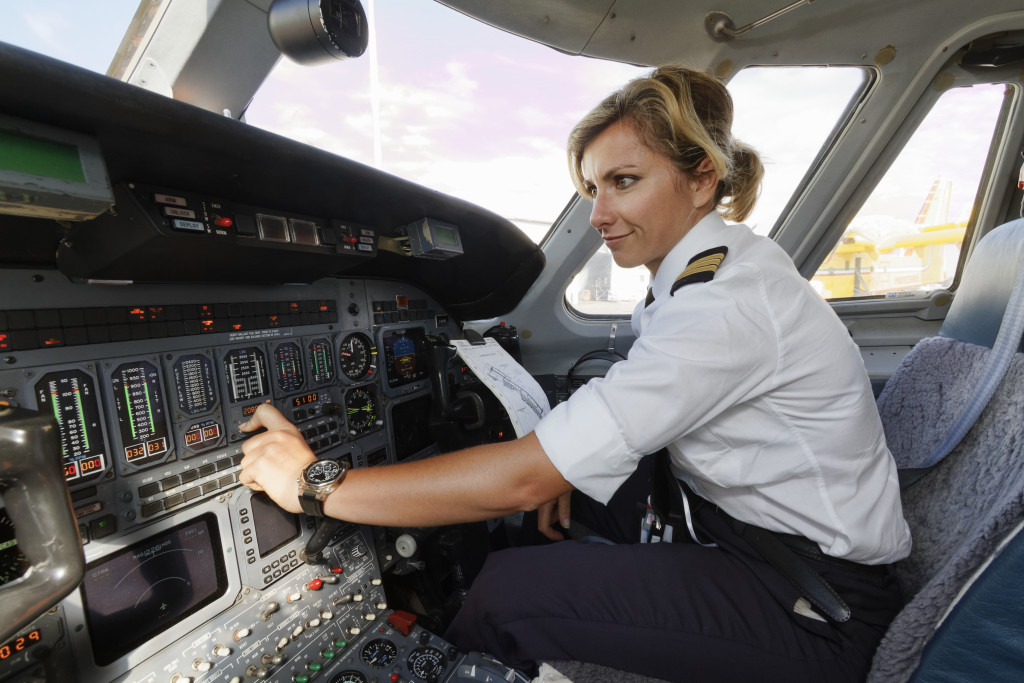- Advanced surveillance systems provide real-time footage and help maintain security in airports and aircraft.
- Biometric technology offers an additional layer of security, using voice, fingerprint, and face recognition systems to authenticate passengers or airport staff.
- Baggage and cargo screening machines use multi-energy linear accelerators to detect explosives or other hazardous materials more precisely.
- Secure communication and data encryption technologies protect aviation industry networks from manipulation or unauthorized access.
- Fly-away kits provide essential tools for maintenance, while access control systems monitor employee admittance to restricted areas.
The airline industry has always strived for the highest safety and security for passengers, crew members, and ground personnel. Given the increased global risks of terrorism and natural disasters, enhancing aviation safety and security is more critical than ever before. Innovations in technology have played a vital role in safeguarding the sector from these risks.
The airline industry is one of the most scrutinized and regulated sectors globally. The primary reason for such close surveillance is to ensure passengers, crew, and cargo safety and security.
Passenger safety is of utmost importance to the aviation industry, and technological advancements have evolved to keep pace with the changing times. With so many lives at stake, the industry’s emphasis on safety and security is not negotiable.
Technology has played an essential role in improving safety and security in the airline industry. The advancements are extensive, from enhancing aircraft design to improving communication and airport infrastructure. Airline technology involves a broad range of cutting-edge devices, software, and processes.
With technology’s continuous growth and advancement, safety and security products have evolved, providing improved accuracy, efficiency, and ease of use.
Enhancing Safety and Security through Innovations in Airline Technology
Innovations in technology have transformed aviation safety and security measures, shifting from manual systems to more automated tools. The following are some technological advancements in the aviation industry that enhance safety and security.
Advanced Surveillance Systems
Surveillance systems have come a long way and have become a primary component in enhancing aviation security. They consist of cameras installed in different parts of airports, aircraft, and other related areas. Such systems provide real-time footage, and multiple screens offer a comprehensive view of security.
Biometric Identification and Authentication
Biometric technology offers an additional layer of security to the aviation industry. Biometric identification and authentication include iris and face recognition, fingerprinting, and voice recognition systems.
With biometric technology, passengers, crew members, and airport staff can be accurately identified and authenticated, minimizing the probability of fraudulent activity.
Baggage and Cargo Screening Technologies
High-tech baggage and cargo screening machines have advanced the industry’s security measures. The latest machines use multi-energy linear accelerators, which can more precisely detect explosives and other hazardous materials.
Secure Communication and Data Encryption
Secure communication and data encryption technologies are critical in protecting the aviation industry’s networks and data. Such technology allows for exchanging information without the risk of hacking, manipulation, or unauthorized access.

Benefits of Enhancing Safety and Security in the Airline Industry
The safety and security of all passengers should be given utmost importance when it comes to air travel. Here are many benefits of enhancing safety and security in the airline industry.
Passenger Confidence
Feeling secure is a top priority for passengers. Having optimal security measures helps assure passengers they are in good hands. A strong sense of security enhances passengers’ positive experience when they fly, decreasing their distress about their journey.
Reputation and Trust
Using innovative safety and security tools solidifies an airline’s reputation and strengthens customer trust in the aviation industry. When airlines invest in the latest safety and security measures, they sign up for a culture of providing excellent customer service and striving to gain and maintain customer confidence.
Operational Efficiency
In an airline context, proper safety and security measures lead to more timely arrival and efficient processes, as passengers and crew members can count on a safe and smooth flight. Airlines can better utilize their resources and keep to optimal schedules by lessening obstacles that may lead to canceled flights.
Regulatory Compliance
The airline industry strictly enforces Safety guidelines and regulations. Innovating with proper tools reduces risks of noncompliance. Keeping up-to-date with the latest regulations also earns an airline a positive reputation for being knowledgeable about aviation laws.

Securing Airline Tools and Essential Items
To help ensure airline safety, it’s necessary to secure airline tools and essential items to prevent any interference from unwanted hands.
Fly Away Kits
These are pre-determined kits containing essential tools and equipment needed for maintenance. They serve as a contingency plan if operations have to be resumed swiftly. Having trusted fly away kits can significantly minimize downtime and ensure crucial repairs or inspections can be carried out promptly and efficiently.
Access Control Systems
Governing the movement of people is vital when it comes to protecting a company. Access control systems oversee employee admittance to places that demand authorized permission.
Tamper-Evident Seals
Tamper-evident seals protect customers’ privacy by determining if their bags have been accessed. Customers can travel freely by knowing their bags are secured from unwanted access.
Overall, technological innovations have improved safety and security measures in the airline industry. The advancements in biometric identification, surveillance systems, baggage screening, and data encryption have contributed significantly to airport and air safety worldwide.
Technology will continue to play a vital role in enhancing aviation safety and security and creating a safer and more secure environment for passengers, crew members, and ground personnel. The aviation industry must continue to invest in the latest technology and stay ahead of the evolving security threats.

